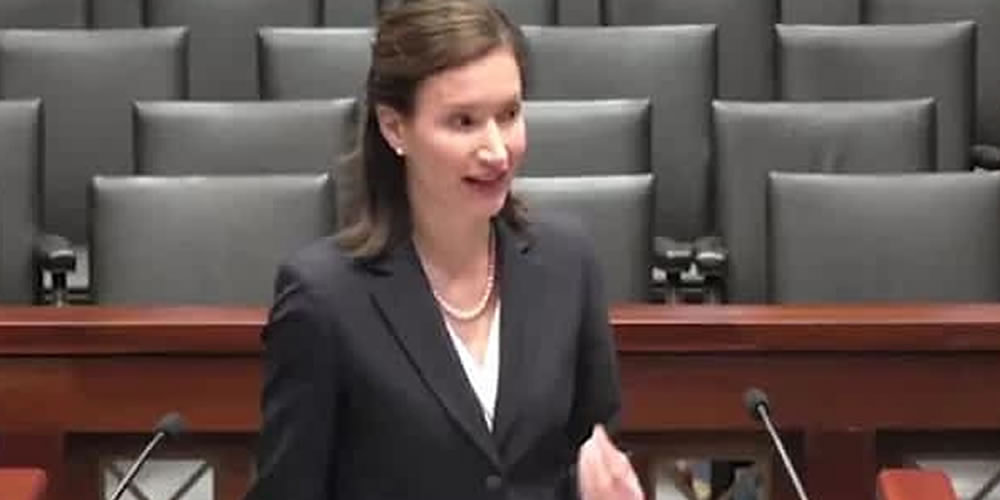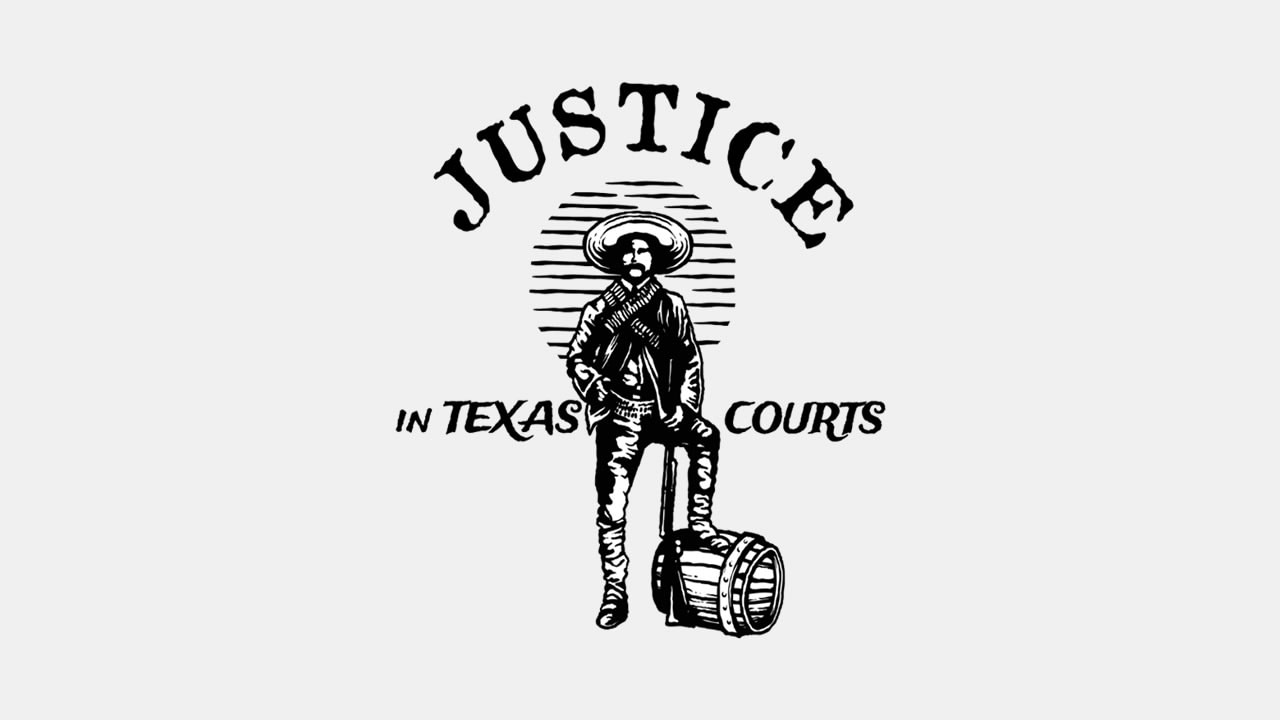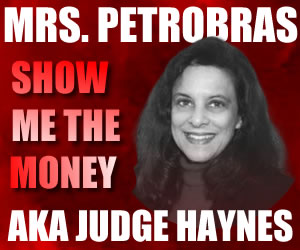Dill v. Fed. Home Loan Mortg. Corp., No. 21-20533 (5th Cir. May 16, 2022)
REPUBLISHED BY LIT: JUN 11, 2022
LIT COMMENT PER CURIAM:
This is Not Per Curiam, it has the evilness of Judge Edith Brown Clement’s hand and the completely unnecessary remarks about “free home” (emphasis shown below).
Appeal from the United States District Court for the Southern District of Texas USDC No. 4:19-CV-4755
Before Clement, Ho, and Oldham, Circuit Judges.
PER CURIAM:[*]
Dana Dill is a Texas homeowner who sought to refinance her home.
In 2016, she obtained a home equity loan. The Federal Home Loan Mortgage Corporation (Freddie Mac) is the owner and holder of the note and 1 LoanDepot.com, LLC (LoanDepot) is the servicer of the loan.
Dill sued Freddie Mac and LoanDepot (Appellees), arguing that they forfeited their right to all principal and interest from the loan because they failed to cure a defect in the closing documents.
A jury ultimately found in favor of Appellees, the district court denied Dill’s motion for a new trial and entered judgment, and Dill appealed.
Dill argues that she is entitled to a free home because she signed her closing documents in the wrong location. We are unpersuaded.
The parties’ closing documents state that § 50(a)(6) of the Texas Constitution strictly governs the loan. Section 50(a)(6)(N) states that home equity loan closing documents may only be executed “at the office of the lender, an attorney at law, or a title company.” Tex. Const. art. XVI, § 50(a)(6)(N).
Pursuant to § 50(a)(6)(Q)(x), if a lender fails to comply with § 50(a)(6)(N), they have 60 days to cure their defect.
Failure to cure that defect, however, results in the lender forfeiting “all principal and interest of the extension of credit.” Id. at § 50(a)(6)(Q)(x).
Dill claims that Appellees forfeited their rights pursuant to § 50(a)(6)(Q)(x) because:
(1) she closed on the loan at her kitchen table;
(2) she notified Appellees of this defect a few years later;
and
(3) Appellees failed to cure the defect.
She also asserts that the district court erred in when it instructed the jury to not only consider whether the contract was breached, but to also consider whether that breach was material and whether Dill was equitably estopped from claiming breach.
But Dill’s arguments leave out critical facts; namely, that she:
(1) filed this lawsuit even though she was not under threat of foreclosure;
(2) testified that she was happy with the terms of 2 the loan;
and
(3) swore when executing the notarized loan that she signed it in the appropriate location.
Based on these facts, Dill cannot succeed.
Dill invokes § 50(a)(6)(N) as an offensive means to receive a free home;
not as a defensive provision to prevent coercion.
The text does not support her claim. According to § 50(a)(6)(N), which falls under the heading “Protection of Homestead from Forced or Unauthorized Sale”:
(a) The homestead of a family, or of a single adult person, shall be, and is hereby protected from forced sale, for the payment of all debts except for:
(6) an extension of credit that:
(N) is closed only at the office of the lender, an attorney at law, or a title company; (emphasis added).
Read in context, the provision protects homeowners from forced, coercive sales at their homes.
Fin. Comm’n of Texas v. Norwood, 418 S.W.3d 566, 588 (Tex. 2013).
It does not serve as a weapon for refinancing homeowners who are not in default or threat of foreclosure to get a free loan.
See generally Garofolo v. Ocwen Loan Servicing, L.L.C., 497 S.W.3d 474, 478 (Tex. 2016).
Further, the record supports the jury’s finding that Dill falsely signed the closing documents with an intent to deceive;
Appellees had no means of knowing where Dill signed the documents;
and Appellees relied on Dill’s sworn misrepresentation to their detriment.
AFFIRMED. 3
JP Morgan Chase Bank briefly served as the servicer of the loan during the initial filing of this lawsuit.
[*] Pursuant to 5th Circuit Rule 47.5, the court has determined that this opinion should not be published and is not precedent except under the limited circumstances set forth in 5th Circuit Rule 47.5.4.
Dill v. Federal Home Loan Mortgage Corporation
(4:19-cv-04755)
District Court, S.D. Texas
AUG 27, 2021 | REPUBLISHED BY LIT: OCT 9, 2021
LIT is not aware of the circumstances as to why Dana Dill would sue. However, when we see she is represented by foreclosure defense law firm, The Lane Law Firm, it appears they may have pivoted to ‘trappin’ lawyers’ (see Judge Catharina Haynes video below) in this case.
Certainly, the testimony of Dill disposes of the question of damages, there was none. LIT would suggest this is clearly a frivolous law suit – but again, it appears that the local lawyers are not facing attorney fees for this civil action – if, indeed they were taking the case on a contingency fee basis.
At trial, Dill testified that she was “happy to have” the loan closed at her home, that no one forced her to sign the closing documents, and that she was and is happy with the loan terms.
MEMORANDUM AND ORDER
Dana Dill refinanced her home with a home-equity loan from the Federal Home Loan Mortgage Corporation (“Freddie Mac”). LoanDepot.com LLC is her current loan servicer.
Dill sued Freddie Mac and LoanDepot, alleging that they violated § 50(a)(6) of the Texas Constitution, which was incorporated into Dill’s refinancing-contract closing documents.
Section 50(a)(6) requires a borrower to sign home-loan closing documents “only at the office of the lender, an attorney at law, or a title company.”
TEX. CONST. art. XVI, § 50(a)(6)(N).
The court held a two-day jury trial.
The parties agreed that Dill signed the refinancing- contract closing documents at her kitchen table, not at one of the required locations, resulting in a breach of the refinancing contract.
Freddie Mac and LoanDepot argued that their breach was immaterial and excused under the doctrine of equitable estoppel.
Freddie Mac and LoanDepot submitted a notarized affidavit, signed by Dill on the closing date, stating that she had signed the refinancing-contract closing documents at one of the locations required by the Texas Constitution.
The jury found that:
(1) Freddie Mac and LoanDepot breached the refinancing contract;
(2) the breach was immaterial;
and
(3) the breach was excused.
The jury’s answers to the questions submitted stated that:
Dill had falsely represented where she had signed the closing documents, with the intent to deceive;
Freddie Mac and LoanDepot did not know, and had no means of knowing, where she had signed the closing documents;
and Freddie Mac and LoanDepot relied on that misrepresentation in refinancing the loan.
Freddie Mac and LoanDepot moved for entry of a take-nothing judgment on the verdict.
Dill moved for a new trial under Federal Rule of Civil Procedure 59, arguing that the defendants had presented insufficient evidence to support the jury’s findings on immateriality and equitable estoppel.
Based on the parties’ briefing, the evidence admitted at trial, the witness testimony, and the applicable law, the court denies the motion for a new trial, (Docket Entry No. 79), grants the motion for entry of judgment, (Docket Entry No. 77), and enters judgment in favor of Freddie Mac and LoanDepot.
The reasons are set out below.
I. Background
Dill’s December 26, 2016 refinancing-contract closing documents included a Texas Home Equity Note, a Texas Home Equity Security Instrument, and a Texas Home Equity Affidavit.
(Docket Entry Nos. 32-4, 32-5; Docket Entry Nos. 72, 73).
The Security Instrument stated that the loan “conform[s] strictly to provisions of the Texas Constitution applicable to Extensions of Credit as defined by Section 50(a)(6), Article XVI, of the Texas Constitution.”
(Docket Entry No. 32-5 at 23; Docket Entry Nos. 72, 73).
In June 2019, Dill sent a notice to cure the constitutional violation of the place where Dill signed the closing documents to the lender, Freddie Mac, and the loan servicer at the time, JP Morgan Chase Bank.
(Docket Entry Nos. 32-6, 32-7; Docket Entry Nos. 72, 73).
In her notice to cure, she alleged a violation of § 50(a)(6)(N), Article XVI, of the Texas Constitution, because she had not closed on the loan in Chase’s office, Freddie Mac’s office, “the title company’s office, or an attorney’s office.”
(Docket Entry No. 32-6 at 4; Docket Entry Nos. 72, 73).
Chase responded a week later, denying that it had violated the Texas Constitution.
(Docket Entry No. 32-8 at 2; Docket Entry Nos. 72, 73).
In October 2019, Dill sued Freddie Mac and Chase in Texas state court, asserting state-law claims for breach of contract and money had and received.
(Docket Entry No. 1-1).
Freddie Mac and Chase timely removed.
(Docket Entry No. 1).
In April 2020, Chase informed Dill that LoanDepot would be the new servicer for her loan.
(Docket Entry No. 32-9).
In May 2020, Dill amended her complaint to remove Chase and add LoanDepot as a defendant.
(Docket Entry No. 19).
Dill’s first amended complaint asserted a breach-of-contract claim against Freddie Mac and LoanDepot for violating § 50(a)(6)(N), Article XVI, of the Texas Constitution, and for failing to cure that violation.
(Id. at ¶¶ 15–18).
In August 2020, Freddie Mac and LoanDepot moved for judgment on the pleadings, alleging that Dill had signed a Home Equity Affidavit on December 26, 2016, stating before a notary that she signed the loan documents at Chase’s office or Freddie Mac’s office, the title company’s office, or an attorney’s office.
(Docket Entry No. 27 at 7–8).
The Home Equity Certificate stated that the loan documents were signed “at either the office of the Originating Lender, an attorney at law, or a title company.”
(Docket Entry No. 33-2; Docket Entry Nos. 72, 73).
In October 2020, Dill moved for summary judgment. She submitted her own affidavit; a log from Cordelia Williams, the notary who witnessed Dill sign the loan documents; and an affidavit from the notary.
(Docket Entry Nos. 32-10, 32-11, 32-12).
Each document showed that Dill signed the refinancing-contract closing documents at her home.
(Docket Entry No. 32-12 at 2; Docket Entry No. 32-10 at 3; Docket Entry No. 32-11 at 2).
The court denied the motion for judgment on the pleadings and the motion for summary judgment, finding factual disputes material to determining the place of signing and not ruling on other issues.
(Docket Entry No. 36).
The court held a two-day jury trial in June 2021. Dill and Williams testified. Freddie Mac and LoanDepot called no witnesses.
The court admitted the following exhibits:
the Texas Home Equity Note;
the Texas Home Equity Security Instrument;
Dill’s notice to cure;
the USPS tracking confirmation and proof of service;
the notice to cure envelope;
Chase’s response to the notice to cure;
the WFG Lender Services service request form;
the Chase service transferring notice;
Williams’s notary log;
and
the ALTA settlement statement. (Docket Entry Nos. 72, 73).
At the close of Dill’s case in chief, Freddie Mac and LoanDepot conceded that Dill’s signing took place at her home but maintained that they did not breach the home-equity loan agreement, that any breach was immaterial, and that any breach was excused. The court submitted the following questions to the jury:
Jury Question No. 1:
Has Ms. Dill proved, by a preponderance of the evidence, that Federal Home Loan Mortgage Corporation and Loan Depot breached the contract by failing to close at an attorney’s office, lender’s office, or title company office?
Jury Question No. 2:
Has Ms. Dill proved, by a preponderance of the evidence, that Federal Home Loan Mortgage Corporation’s and Loan Depot’s breach of the contract was material?
Jury Question No. 3:
Have the Federal Home Loan Mortgage Corporation and Loan Depot proved, by a preponderance of the evidence, that the alleged breach was excused because:
a. Ms. Dill made a false representation; and
b. Ms. Dill acted with knowledge of the misrepresented fact; and
c. Ms. Dill acted with the intention that the Federal Home Loan Mortgage Corporation and Loan Depot would rely on the representation in deciding to refinance her loan; and
d. the Federal Home Loan Mortgage Corporation and Loan Depot did not know and had no means of knowing the real fact; and
e. the Federal Home Loan Mortgage Corporation and Loan Depot relied to their detriment on the false representation?
(Docket Entry No. 76).
The jury unanimously answered “yes” to question 1, “no” to question 2, and “yes” to question 3 and each of its subparts. (Id.).
Freddie Mac and LoanDepot moved for entry of judgment.
(Docket Entry No. 77).
Dill moved for a new trial, (Docket Entry No. 79), and Freddie Mac and LoanDepot responded, (Docket Entry No. 80).
II. The Legal Standards
A. Motion for a New Trial
Federal Rule of Civil Procedure 59 permits a court to “grant a new trial on all or some of the issues . . . after a jury trial, for any reason for which a new trial has heretofore been granted in an action at law in federal court.”
FED. R. CIV. P. 59(a).
A new trial may be granted, for example, if the district court finds the verdict is against the weight of the evidence, the damages awarded are excessive, the trial was unfair, or prejudicial error was committed in its course.”
Beckham v. La. Dock Co., 124 F. App’x 268, 270 (5th Cir. 2005) (per curiam) (quoting Smith v. Transworld Drilling Co., 773 F.2d 610, 612 (5th Cir. 1985)).
A new trial may also be granted when there is “uncertainty or contingency to the finality of the jury’s determination,” see Cook v. United States, 379 F.2d 966, 970 (5th Cir. 1967), or when the jury’s inconsistent verdict cannot be reconciled, see Crossland v. Canteen Corp., 711 F.2d 714, 726 (5th Cir. 1983).
III. Analysis
In Texas, “the homestead has always been protected from forced sale, not merely by statute as in most states, but by the Constitution.”
Garofolo v. Ocwen Loan Servicing, LLC, 497 S.W.3d 474, 477 (Tex. 2016) (quoting Fin. Comm’n of Tex. v. Norwood, 418 S.W.3d 566, 570 (Tex. 2013)). Section 50(a)(6), Article XVI, of the Texas Constitution lists requirements that home equity loans must meet for a lender to have a valid lien on a borrower’s homestead property.
See TEX. CONST. art. XVI, § 50(c); see Garofolo, 497 S.W.3d at 478 (“[Section 50(a)(6)] simply describes what a home-equity loan must look like if a lender wants the option to foreclose on a homestead upon borrower default.”).
To state a claim under § 50(a)(6), the plaintiff must allege violations of § 50(a)(6) in conjunction with a cause of action, such as for breach of contract.
Garofolo, 497 S.W.3d at 478.
Section 50(a)(6) requires a borrower to notify the lender of its noncompliance.
TEX. CONST. art. XVI, § 50(a)(6)(Q)(x).
That notice triggers the lender’s opportunity to cure.
Id.
The lender has 60 days from the borrower’s notice to cure.
Id.
If the lender does not, it “shall forfeit all principal and interest of the extension of credit.”
Id.
This provision does not create a constitutional right to forfeiture, but forfeiture can be enforced through a breach-of-contract claim.
Garofolo, 497 S.W.3d at 482; In re Gulley, 436 B.R. 878, 891 (Bankr. N.D. Tex. 2010) (“[The lender] must now forfeit all principal and interest on the home equity loan (in addition to it not having a valid lien that can be foreclosed upon).”).
Section 50(a)(6)(N) of the Texas Constitution requires the closing of a home equity loan to occur “only at the office of the lender, an attorney at law, or a title company.”
TEX. CONST. art. XVI, § 50(a)(6)(N).
This “provision was intended to prohibit the coercive closing of an equity loan at the home of the owner.”
Norwood, 418 S.W.3d at 588.
The evidence and testimony at trial established that the parties incorporated § 50(a)(6) into the Home Equity Security Instrument.
The jury found that LoanDepot and Freddie Mac breached this contract provision.
The testimony at trial also established that Dill sent Freddie Mac and LoanDepot a notice of violation, alleging that her “loan was closed somewhere that wasn’t” Freddie Mac’s office, Chase’s office, “a title company’s office, or an attorney’s office.”
(Docket Entry No 32-6 at 4; Docket Entry No. 72).
Freddie Mac and LoanDepot did not cure within 60 days of receiving the notice.
(Docket Entry No. 32-3 at 11; Docket Entry No. 32-8 at 2).
Dill presented no evidence of damages from the place of signing or failure to cure. Had Freddie Mac and LoanDepot cured, Dill would have received the same loan on the same terms. Dill is current on the loan, there is no outstanding balance, and no foreclosure is at issue.
Dill argues that, because Freddie Mac and LoanDepot breached the parties’ contract by closing her home-equity loan in the wrong location, and did not cure within 60 days of receiving her notice, she is entitled to title to her home with no lien, forfeiture of past payments on principal and interest, and no future payments.
Freddie Mac and LoanDepot argue that Dill is not entitled to forfeiture because the jury found that their breach was immaterial and that their breach was excused under the doctrine of estoppel.
Dill argues that there was insufficient evidence to support the jury’s immateriality and estoppel findings, and that she is entitled to forfeiture regardless of the immateriality and estoppel findings.1
A. Immateriality
The record contained sufficient evidence to support the jury’s finding that Freddie Mac and LoanDepot’s breach was immaterial. Materiality is a fact question that was properly submitted to the jury.
Levine v. Steve Scharn Custom Homes, Inc., 448 S.W.3d 637, 654 (Tex. App.—Houston [1st Dist.] 2014, pet. denied).
The jury question on materiality tracked the relevant portions of the Texas Pattern Jury Instructions.
TEX. PATTERN JURY INSTRUCTIONS, BUSINESS, CONSUMER, INSURANCE, & EMPLOYMENT § 101.2 (2016).
At trial, Dill testified that she was “happy to have” the loan closed at her home, that no one forced her to sign the closing documents, and that she was and is happy with the loan terms.
These statements were enough for the jury to find that it was immaterial to Dill that she signed the refinancing-contract closing documents at her home. Signing at her home allowed her to close on the refinancing she wanted the day after Christmas.
While § 50(a)(6) was designed to prevent coercive closings, Norwood, 418 S.W.3d at 588, Dill testified that the closing was not coercive.
“When a breach is immaterial, the nonbreaching party is not excused from future performance but may sue for the damages caused by the breach.”
Levine, 448 S.W.3d at 654 (citing Hernandez v. Gulf Group Lloyds, 875 S.W.2d 691, 693 (Tex. 1994));
Ferrell v. Sec’y of Def., 662 F.2d 1179, 1181 (5th Cir. 1981)
(“If, on the other hand, the failure to perform is not material, the injured party retains his duty to render his performance. There is still a breach of contract, but the innocent party must recoup his losses, if any, for such an immaterial breach through an action for damages or one of the other procedural devices designed for that purpose.”
(citing RESTATEMENT (SECOND) OF CONTRACTS §§ 235–38, 241 (1979)); 23 WILLISTON ON CONTRACTS § 63:4 (4th ed. 2021)
(“Although the degree of breach has an impact both on the nature of the damages recoverable and on the question whether the nonbreaching party is discharged from further performance under the contract, it is immaterial, for the purpose of determining the existence of a breach of contract, whether the failure in performance is great or small, or whether any damage of a substantial nature has been caused.”).
The finding of immateriality did not preclude Dill from seeking damages, but she showed no damages from the violation.
B. Equitable Estoppel
1. Unfair Surprise
Dill argues that equitable estoppel should not have been submitted to the jury because Freddie Mac and LoanDepot did not include it in the joint pretrial order. Freddie Mac and LoanDepot raised the estoppel affirmative defense in their answers.
(Docket Entry No. 3 at 9; Docket Entry No. 20 at ¶ 28; Docket Entry No. 21 at ¶ 27).
Dill did not move to strike or dismiss this affirmative defense. Freddie Mac and LoanDepot referred to this defense in other filings.
(Docket Entry No. 59).
Freddie Mac and LoanDepot also argued in their motion to dismiss that Dill should not be allowed to deny her sworn affidavit, citing several cases on estoppel.
(Docket Entry No. 27 at 7–8).
There was no unfair surprise in allowing Freddie Mac and LoanDepot to raise estoppel at trial as an affirmative defense.
See C&C Inv. Properties, L.L.C. v. Trustmark Nat’l Bank, 838 F.3d 655, 660 (5th Cir. 2016) (“[The defendant] raised its [affirmative] defense in its answer so there is no basis for the [plaintiffs] to argue unfair surprise.”).
2. Evidence Supported the Jury’s Estoppel Findings
Dill argues that there was insufficient evidence to support the jury’s estoppel findings.
The question was as follows:
Have the Federal Home Loan Mortgage Corporation and Loan Depot proved, by a preponderance of the evidence, that the alleged breach was excused because:
a. Ms. Dill made a false representation; and
b. Ms. Dill acted with knowledge of the misrepresented fact; and
c. Ms. Dill acted with the intention that the Federal Home Loan Mortgage Corporation and Loan Depot would rely on the representation in deciding to refinance her loan; and
d. the Federal Home Loan Mortgage Corporation and Loan Depot did not know and had no means of knowing the real fact; and
e. the Federal Home Loan Mortgage Corporation and Loan Depot relied to their detriment on the false representation?
(Docket Entry No. 76).
Evidence in the record satisfied each element.
First, Dill acknowledged that she signed her refinancing-contract closing documents at her home even though she had signed a notarized document stating that she did not.
Second, Dill testified that, despite her signature on a document stating that she had signed the closing documents at a lawyer’s office, title company, or lender’s office, she did not know that she had misrepresented the signing location and did not intend Freddie Mac or LoanDepot to rely on the representation.
The jury also considered Dill’s notice to cure, which detailed several violations of the Texas Constitution, including signing at an improper location.
Dill’s notice to cure undercuts the claim that she did not know about her representation or intend Freddie Mac and LoanDepot to rely on it.
See United States v. Garcia, 995 F.2d 556, 561 (5th Cir. 1993) (“The credibility of the witnesses and the weight of the evidence is the exclusive province of the jury.”);
Indep. Receivables Corp. v. Precision Recovery Analytics, Inc., No. 11-CV-008, 2012 WL 12874526, at *7 (W.D. Tex. May 16, 2012) (“Whether DiGennaro had knowledge of, or participated in, Jackson’s misrepresentations . . . will ultimately depend on credibility determinations in the province of the jury, not this court.”).
Third, the evidence showed that Freddie Mac and Loan Depot outsourced the job of having Dill sign the closing documents to WFG Lending Services, the company that sent the notary, Williams, to Dill’s home.
Williams testified that WFG, not Freddie Mac or LoanDepot, instructed her to go to Dill’s home the day after Christmas to have her present the loan documents to Dill and notarize them.
The evidence did not show that Freddie Mac or LoanDepot knew of the closing arrangement or location.
There was sufficient evidence for the jury to conclude that Freddie Mac and LoanDepot “did not know and had no means of knowing” where Dill signed the refinancing- contract closing documents.
Fourth, the jury was presented with Dill’s Texas Home Equity Affidavit, which Dill was required to execute before receiving her refinancing contract.
The jury had sufficient evidence to find that Freddie Mac and LoanDepot relied on Dill’s sworn statement on the affidavit about the signing location and would not have extended Dill the refinancing she sought without a completed Home Equity Affidavit.
3. Whether Estoppel Applies to Dill’s Breach-of-Contract Claim
Dill argues that Freddie Mac and LoanDepot are using estoppel to create an unconstitutional lien. Under Texas law, a party “may be estopped to deny the validity of an existing lien,” but a lien cannot be “estopped into existence.”
Hruska v. First State Bank of Deanville, 747 S.W.2d 783, 785 (Tex. 1988) (quotation marks omitted); see also Priester v. Long Beach Mortg. Co., No. 16-CV-449, 2018 WL 4469679, at *4 (E.D. Tex. Sept. 18, 2018) (“As already noted, . . . the home equity lender[] proved through its motion for summary judgment and attached evidence that the Loan exists without using estoppel. As such, because that burden is discharged, while they cannot use waiver or ratification, Defendants may use an estoppel argument to prevent Plaintiffs from denying the validity of the existing lien, the Loan.”);
In re Chambers, 419 B.R. 652, 670 (Bankr. E.D. Tex. 2009) (“In other words, while a homestead claimant may, under certain circumstances, be estopped to deny the validity of an existing lien, [a] lien cannot be estopped into existence.” (citation and quotation marks omitted)), aff’d, 544 F. App’x 347 (5th Cir. 2013).
Dill challenges the continuing validity, not the existence, of her refinancing contract and the associated lien. If a lien does not already exist, a lender cannot rely on an estoppel defense to create it.
For example, in Hruska, 747 S.W.2d at 784, the plaintiffs sought and obtained bank financing for improvements to their home. The plaintiffs represented that they had filled out the necessary improvements contract. The lender later reviewed their loan file and discovered that no improvements contract had ever been signed.
The Texas Supreme Court invalidated the supposed lien, because there was no written contract to support that it existed at all.
Id. at 785 (“The fact that the [plaintiffs] may have promised to execute a lien in the manner mandated by the Constitution and then failed to do so, does not change the fact that no such lien was prepared.”(emphasis in original)).
Similarly, in In re Gulley, 436 B.R. at 887, a homeowner appeared to accept a home equity loan.
But when the lender tried to foreclose on the home, the evidence showed the homeowner’s signature was likely forged, id. at 885–86, and the homeowner never “had full knowledge of the signing of the Home Equity Loan Documents and did not even become aware that there was a lien on the Homestead until she received the foreclosure notice,” id. at 887.
The court invalidated the lien on the homeowner’s property.
Dill signed her 2016 refinancing-contract closing documents, including a Texas Home Equity Note, a Texas Home Equity Security Instrument, and a Texas Home Equity Affidavit.
(Docket Entry Nos. 32-4, 32-5).
Dill testified at trial that she voluntarily entered into the refinancing contract, that she has consistently made payments on the loan, and that further payments are due.
Her challenge is not to the lien’s existence, but to whether it can continue past the failure to cure in response to her notice that the closing documents had been signed in a noncompliant location.
See Feuerbacher v. Wells Fargo Bank Nat’l Ass’n for ABFC 2006-OPT 1 Tr., Asset Backed Funding Corp. Asset-Backed Certificates, Series 2006-OPT1, 701 F. App’x 297, 300 (5th Cir. 2017) (“[T]he court in Hruska was considering a situation in which no lien document even existed.”).
Estoppel is not being applied to create a lien.
Hruska, 747 S.W.2d at 785.
To be clear, if Dill had defaulted and the lender or loan servicer sought to foreclose on the lien, Dill could raise the constitutional violation as a defense to foreclosure.
Garofolo, 497 S.W.3d at 479.
It is also clear that if Dill had paid off the loan, the violation would be moot because there would be no lien to forfeit.
Id. at 479–80.
Neither situation is present.
Because Freddie Mac and LoanDepot did not know of the signing place and Dill did, estoppel applies.
The facts and law support the jury’s finding that Freddie Mac and LoanDepot’s breach of the refinancing contract is excused under the doctrine of equitable estoppel.
IV. Conclusion
LoanDepot’s and Freddie Mac’s motion for judgment, (Docket Entry No. 77), is granted. Dill’s motion for a new trial, (Docket Entry No. 79), is denied.
The court enters judgment in favor of Freddie Mac and LoanDepot as follows:
Dana Dill takes nothing from her claims against Freddie Mac and LoanDepot;
all relief requested by Dana Dill is denied;
and
this judgment finally disposes of the parties’ claims and is final and appealable.
SIGNED on August 27, 2021, at Houston, Texas.
Lee H. Rosenthal
Chief United States District Judge
U.S. District Court
SOUTHERN DISTRICT OF TEXAS (Houston)
CIVIL DOCKET FOR CASE #: 4:19-cv-04755
| Dill v. Federal Home Loan Mortgage Corporation et al Assigned to: Chief Judge Lee H Rosenthal
Cause: 28:1332 Diversity-Petition for Removal |
Date Filed: 12/06/2019 Date Terminated: 08/27/2021 Jury Demand: Defendant Nature of Suit: 290 Real Property: Other Jurisdiction: Diversity |
| Plaintiff | ||
| Dana Dill | represented by | Joshua David Gordon The Lane Law Firm 6200 Savoy Dr Ste 1150 Houston, TX 77036 713-595-8200 Fax: 713-595-8201 Email: joshua.gordon@lanelaw.com LEAD ATTORNEY ATTORNEY TO BE NOTICEDRobert Chamless Lane The Lane Law Firm 6200 Savoy Drive Ste 1150 Houston, TX 77036-3300 713-595-8200 Email: notifications@lanelaw.com LEAD ATTORNEY ATTORNEY TO BE NOTICEDScott Alexander Lick Attorney at Law 6200 Savoy Dr Ste 1150 Houston, TX 77036 713-595-8200 Email: alex.lick@lanelaw.com ATTORNEY TO BE NOTICED |
| V. | ||
| Defendant | ||
| Federal Home Loan Mortgage Corporation | represented by | Anthony Laurent Laporte Hanszen Laporte LLP 14201 Memorial Dr Houston, TX 77079 713-522-9444 Fax: 713-524-2580 Email: alaporte@hanszenlaporte.com LEAD ATTORNEY ATTORNEY TO BE NOTICEDMatthew Slade Crandall Hansel Hanszen Laporte LLP 14201 Memorial Drive Houston, TX 77079 713-522-9444 Email: mhansel@hanszenlaporte.com ATTORNEY TO BE NOTICEDRebecca Kendall Yow Quilling Selander et al 2001 Bryan St Ste 1800 Dallas, TX 75201 214-880-1833 Email: kyow@qslwm.com TERMINATED: 02/12/2020 ATTORNEY TO BE NOTICEDZachary Smith Hanszen Laporte, LLP 14201 Memorial Drive Houston, TX 77079 713-522-9444 Email: zsmith@hanszenlaporte.com ATTORNEY TO BE NOTICEDWilliam Lance Lewis Quilling Selander et al 2001 Bryan St Suite 1800 Dallas, TX 75201 214-871-2100 Fax: 214-871-2111 Email: llewis@qslwm.com TERMINATED: 02/12/2020 ATTORNEY TO BE NOTICED |
| Defendant | ||
| JPMorgan Chase Bank, N.A. TERMINATED: 06/09/2020 |
represented by | Anthony Laurent Laporte (See above for address) TERMINATED: 06/09/2020 LEAD ATTORNEY ATTORNEY TO BE NOTICEDWilliam Lance Lewis (See above for address) TERMINATED: 01/30/2020 LEAD ATTORNEYKent Melvin Hanszen Hanszen Laporte 14201 Memorial Drive Houston, TX 77079 713-522-9444 Fax: 713-524-2580 Email: khanszen@hanszenlaporte.com TERMINATED: 06/09/2020 ATTORNEY TO BE NOTICEDMatthew Slade Crandall Hansel (See above for address) TERMINATED: 06/09/2020 ATTORNEY TO BE NOTICEDRebecca Kendall Yow (See above for address) TERMINATED: 01/30/2020 |
| Defendant | ||
| LoanDepot.com LLC | represented by | Anthony Laurent Laporte (See above for address) LEAD ATTORNEY ATTORNEY TO BE NOTICED |
| Counter Claimant | ||
| JPMorgan Chase Bank, N.A. TERMINATED: 06/09/2020 |
represented by | Anthony Laurent Laporte (See above for address) TERMINATED: 06/09/2020 LEAD ATTORNEY ATTORNEY TO BE NOTICEDWilliam Lance Lewis (See above for address) TERMINATED: 01/30/2020 LEAD ATTORNEYKent Melvin Hanszen (See above for address) TERMINATED: 06/09/2020 ATTORNEY TO BE NOTICEDMatthew Slade Crandall Hansel (See above for address) TERMINATED: 06/09/2020 ATTORNEY TO BE NOTICEDRebecca Kendall Yow (See above for address) TERMINATED: 01/30/2020 |
| Counter Claimant | ||
| Federal Home Loan Mortgage Corporation | represented by | Anthony Laurent Laporte (See above for address) LEAD ATTORNEY ATTORNEY TO BE NOTICEDMatthew Slade Crandall Hansel (See above for address) ATTORNEY TO BE NOTICEDRebecca Kendall Yow (See above for address) TERMINATED: 02/12/2020 ATTORNEY TO BE NOTICEDZachary Smith (See above for address) ATTORNEY TO BE NOTICEDWilliam Lance Lewis (See above for address) TERMINATED: 02/12/2020 ATTORNEY TO BE NOTICED |
| V. | ||
| Counter Defendant | ||
| Dana Dill | represented by | Joshua David Gordon (See above for address) LEAD ATTORNEY ATTORNEY TO BE NOTICEDRobert Chamless Lane (See above for address) LEAD ATTORNEY ATTORNEY TO BE NOTICED |
| Date Filed | # | Docket Text |
|---|---|---|
| 07/15/2021 | 77 | MOTION for Entry of Order re: Entry of Judgment on the Verdict by Federal Home Loan Mortgage Corporation, LoanDepot.com LLC, filed. Motion Docket Date 8/5/2021. (Attachments: # 1 Proposed Order Final Judgment)(Laporte, Anthony) (Entered: 07/15/2021) |
| 07/21/2021 | 78 | Letter regarding Exhibit A to Doc 77 by Federal Home Loan Mortgage Corporation, LoanDepot.com LLC, filed. (Attachments: # 1 Exhibit Exhibit A to Doc 77)(Laporte, Anthony) (Entered: 07/21/2021) |
| 07/30/2021 | 79 | MOTION for New Trial by Dana Dill, filed. Motion Docket Date 8/20/2021. (Attachments: # 1 Proposed Order)(Lane, Robert) (Entered: 07/30/2021) |
| 08/06/2021 | 80 | RESPONSE to 79 MOTION for New Trial , filed by Federal Home Loan Mortgage Corporation, LoanDepot.com LLC. (Laporte, Anthony) (Entered: 08/06/2021) |
| 08/27/2021 | 81 |
MEMORANDUM AND ORDER entered: DENYING 79 MOTION for New Trial, GRANTING 77 MOTION for Entry of Order re: Entry of Judgment on the Verdict. (Signed by Chief Judge Lee H Rosenthal) Parties notified.(leddins, 4) (Entered: 08/27/2021) |
| 09/24/2021 | 82 | NOTICE OF APPEAL to US Court of Appeals for the Fifth Circuit re: 81 |
| 09/27/2021 | 83 | Clerks Notice of Filing of an Appeal. The following Notice of Appeal and related motions are pending in the District Court: 82 Notice of Appeal. Fee status: Paid. Reporter(s): N. Forrest, J. Sanchez, K. Metzger, S. Gumm, filed. (Attachments: # 1 Notice of Appeal) (JenniferLongoria, 1) (Entered: 09/27/2021) |
| 09/28/2021 | 84 | Trial EXHIBITS by Federal Home Loan Mortgage Corporation (ClaudiaGutierrez, 4) (Entered: 09/28/2021) |
| 09/28/2021 | 85 | Trial EXHIBITS by Dana Dill (ClaudiaGutierrez, 4) (Entered: 09/28/2021) |























